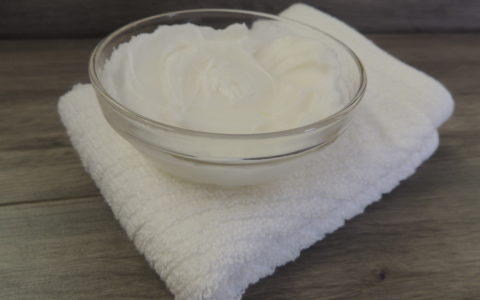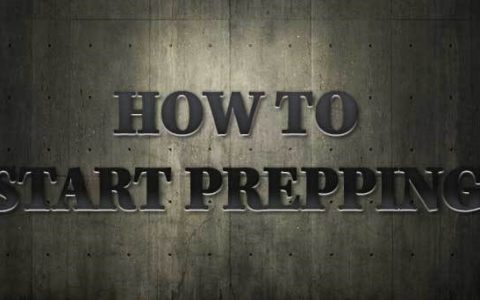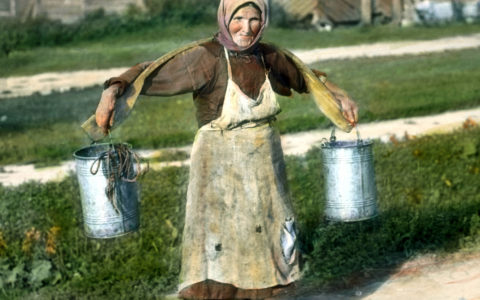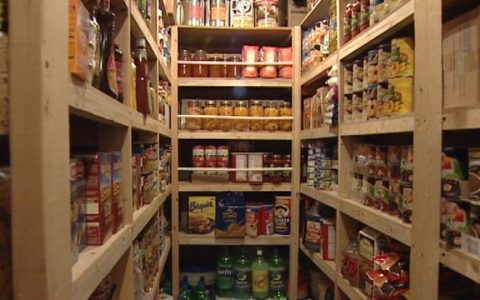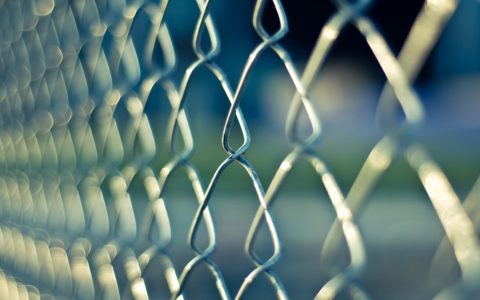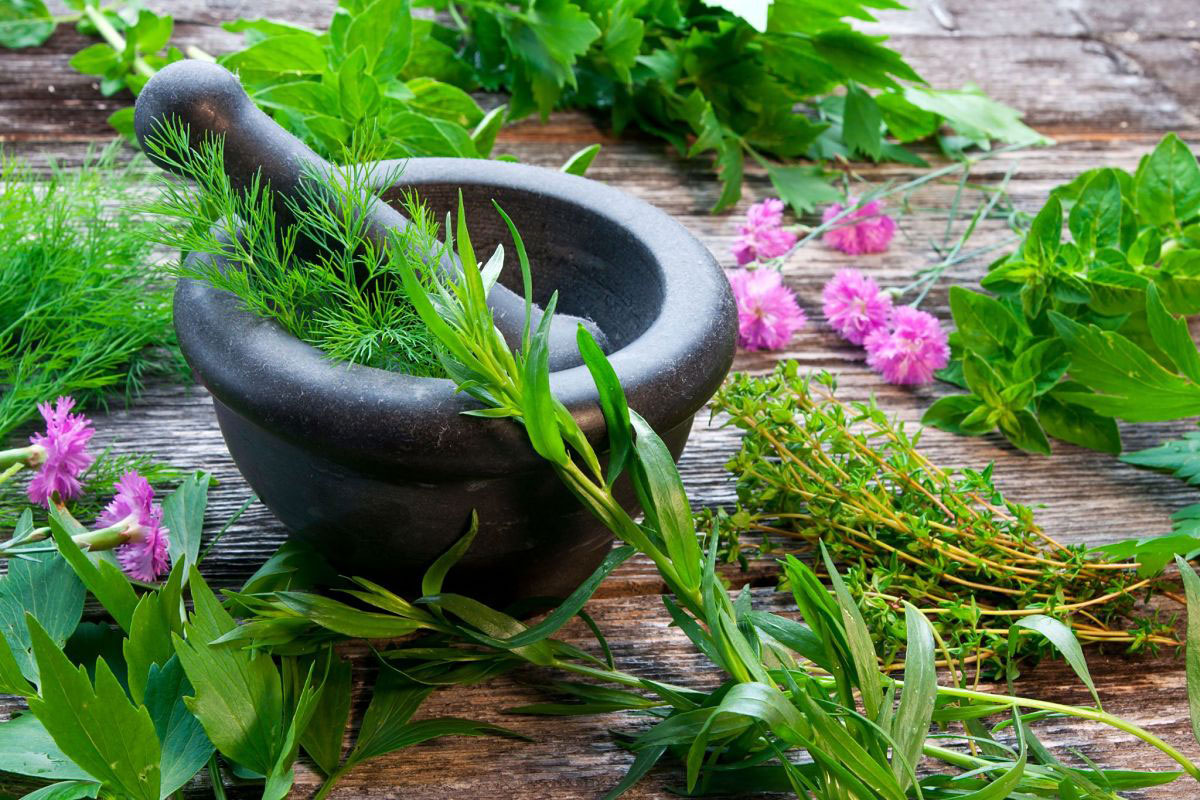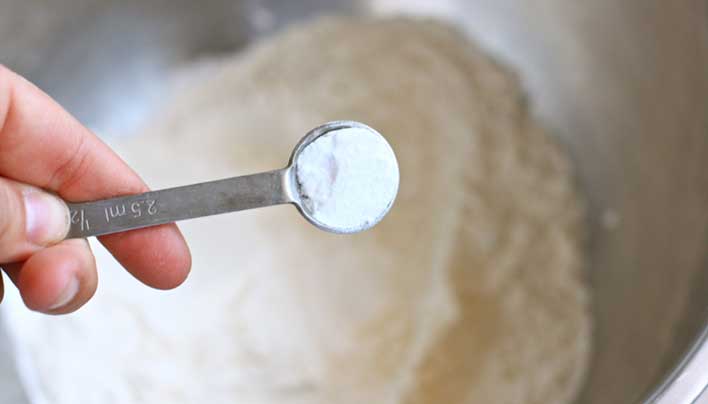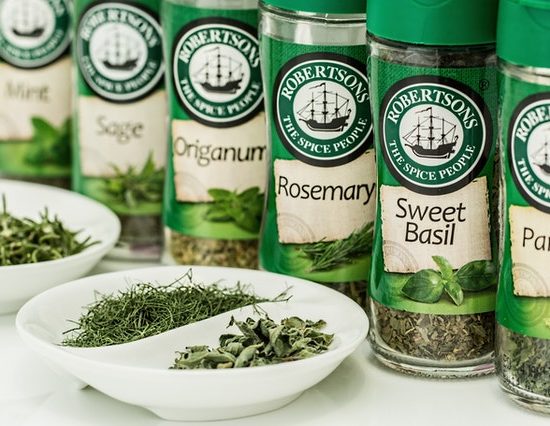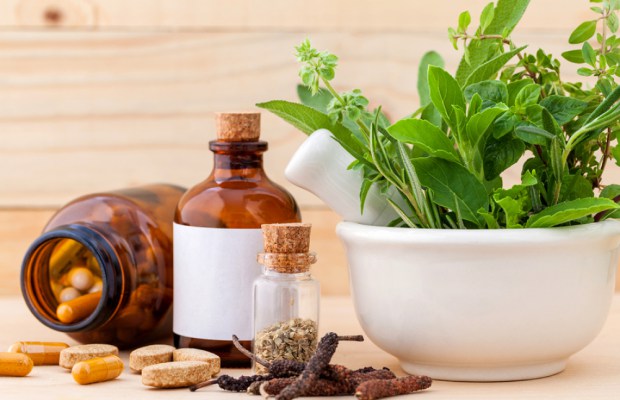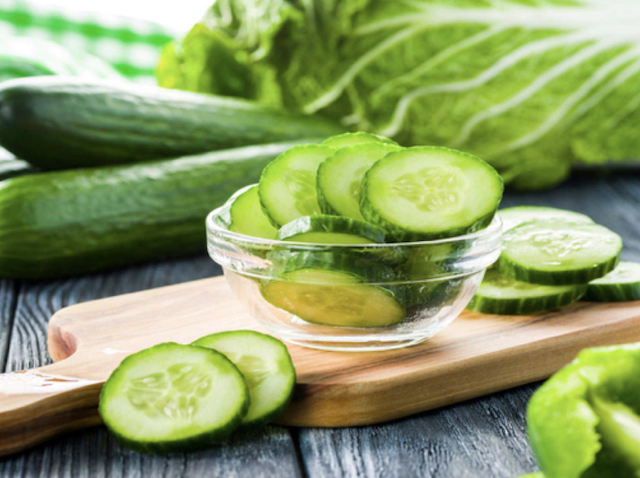
That it’s really a fruit, not a vegetable, was once the most interesting thing about the cucumber. However, a study conducted by the Scripps Research Institute in San Diego has now officially elevated the packed-lunch sandwich staple to superfood status.
Cucumbers contain magnesium, potassium, and vitamin K. These 3 nutrients are vital for the proper functioning of the cardiovascular system. In taking magnesium and potassium can lower down blood pressure. A regular intake of cucumber has been found to decrease bad cholesterol and blood sugar levels as well.
Antioxidants such as beta carotene in cucumbers can help fight free radicals in your body, unpaired electrons that damage cells and can lead to disease. Cucumbers may also have health benefits outside your body. Putting them on your skin may help ease sunburn pain, swelling, and damaged skin.
Cucumbers may be one of the most underrated fruits—yes, you read that correctly. Because cucumbers grow from flowers and contain seeds, cucumbers are technically—and botanically—a fruit, not a vegetable. Cucumbers are often touted as a beauty superfood because of their high water volume (they are 95% water!) and superior ability to hydrate. Plus, along with eating cucumbers, this fruit contains vitamin K and anti-inflammatory plant compounds that can help de-puff eyes and treat dark circles when sliced and applied topically.
But more important than their beauty benefits is the powerful impact eating cucumbers can have on your heart health. Turns out, cukes can support your cardiovascular system in various ways. Here’s how.
They help control blood sugar.
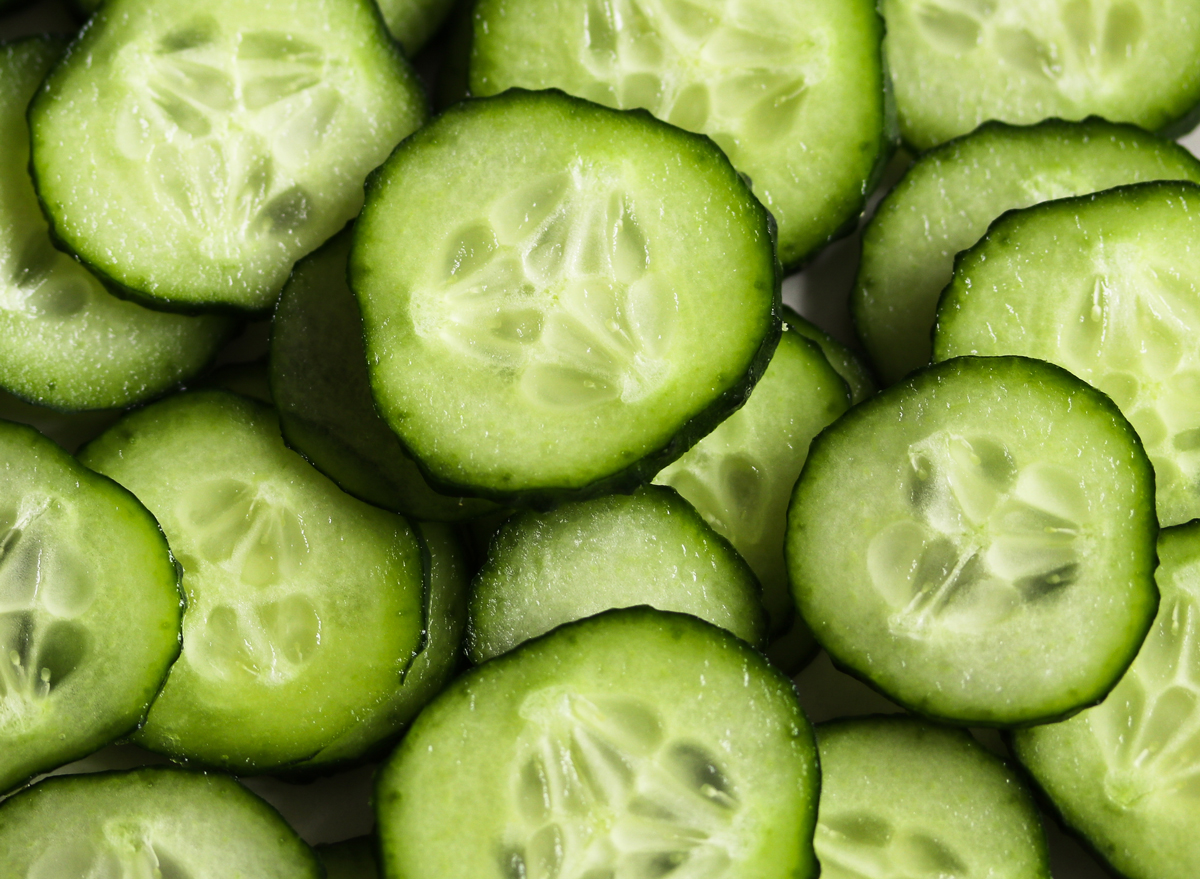
It’s long been known that low-carb diets help control blood sugar levels and now, several animal studies show that cucumbers, in particular, may help reduce blood sugar levels. Having reduced blood sugar levels means less damage to your blood vessels as well as the nerves that control your heart. In another study, cucumber peel (which contains nutrients and fiber) reversed many diabetes-associated markers, including decreasing blood sugar. So don’t peel the peel!
They can assist in lowering blood pressure.
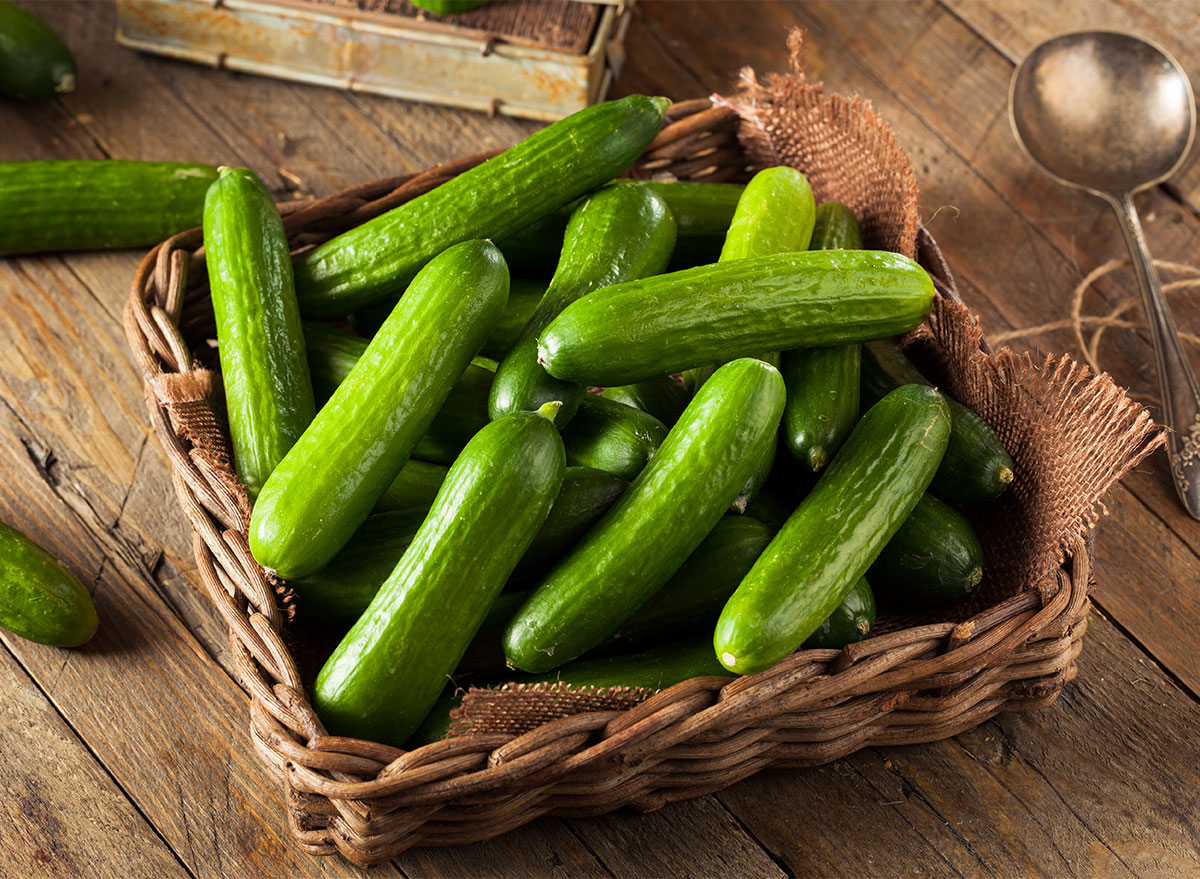
Eating cucumbers promotes the widening of blood vessels (vasodilatation), which can help combat hypertension and reduces the risk of heart disease. A 2017 study found that drinking cucumber juice for 12 days helped lower the blood pressure of older adults. Doctors recommend that patients with high blood pressure eat low-sodium foods—and cucumbers make an excellent choice (provided you don’t douse them in salt!). They also contain magnesium and potassium, which can help lower blood pressure because it supports the elimination of sodium via urine.
They protect your heart.
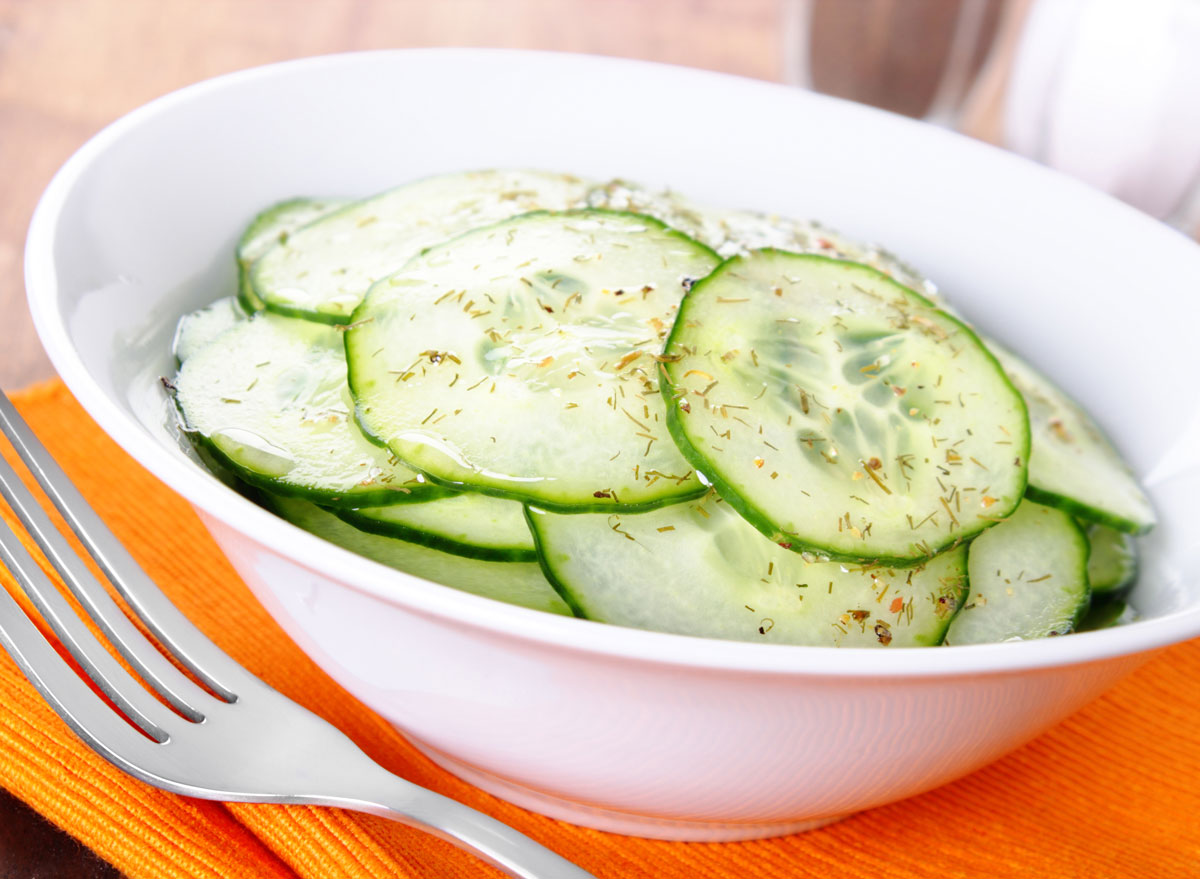
Though cucumbers can’t guard against emotional heartbreak (too bad), they can protect your heart in other ways. Studies show that they are adept at scavenging damaging free radicals thanks to their antioxidant properties (they contain flavonoids, those plant compounds). How does this help your ticker? Antioxidants block oxidative stress—the chemical process that generates damaging free radicals—which has been shown to contribute to cancer and heart disease.
They help prevent clogged arteries.
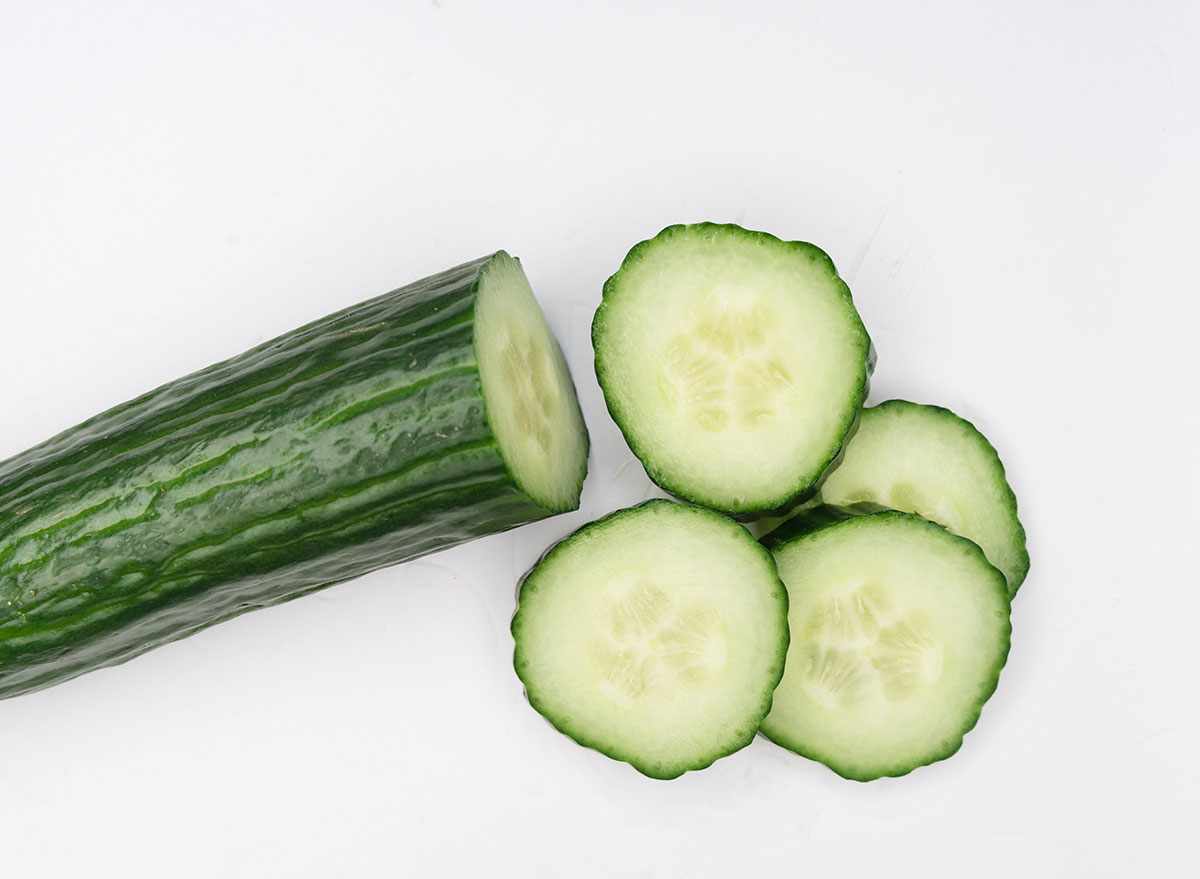
Studies show that those almighty cucurbitacins (plant compounds) are a natural therapy for fighting atherosclerosis, the dangerous build-up of fatty matter on artery walls.
Ways to Consume More Cucumbers
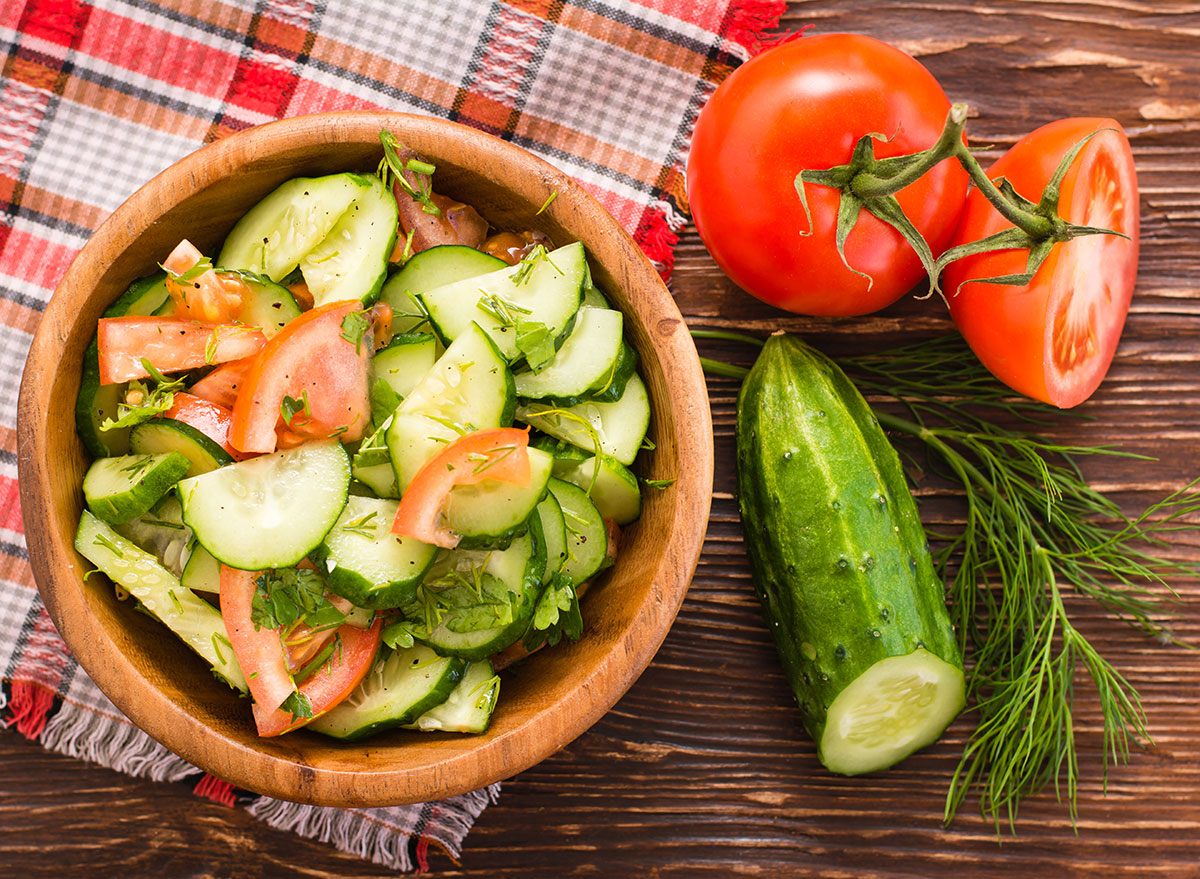
- Nibble them raw: Make sure you wash them and leave the peel intact—that’s where much of the fiber and nutrients are.
- Make a Tzatziki dip: The traditional Greek dip is simple and tasty with a short list of ingredients that includes yogurt (yeah, the Greek kind), cucumbers, fresh herbs, lemon juice and garlic. Great for pita triangles or raw veggies—including cucumber spears if you want to double down!
- Chuck them in a smoothie: Cucumbers are a prime ingredient for a low-cal smoothie. In addition to peeled and seeded cucumbers, add some fruit for sweetness, greens, vanilla protein powder, ice and water and blend.
- Make a hydrating juice: Celery juice may win the popularity contest, but as a low-cal hydrator, cucumbers hold their own. So dispense with the creativity and just make cuke juice. Here’s a basic recipe using a standard blender: Wash, peel and blend cucumbers with water using a cukes-to-water ratio of 1:2 parts. You can add a squeeze of lemon or lime juice and a little salt, if you want. Strain until you get the consistency you desire. Side note: Weirdly, cucumbers sort of dehydrate while they rehydrate because they have mild diuretic properties.
- Make the simplest Greek salad: Just chop up cucumbers, tomatoes and red onions into similarly sized pieces. Toss in some black olives and chunks of feta, then whip up a simple red wine EVOO dressing. A few grinds of pepper and you’re done!
- Prepare a summery cold soup: Cucumber soup makes for an impressive dinner-party appetizer and it couldn’t be easier. Here’s one recipe for a healthy yogurt-based cucumber and dill soup. Not a fan of dill?
- Make this creamy, ket0-friendly snack: The keto diet is high in fat and low in carbs.
You can find the original article HERE.
Sharing is prepping.




